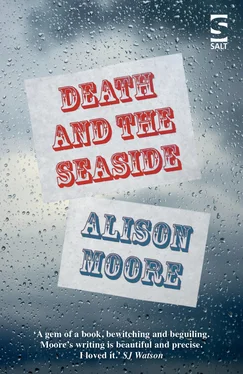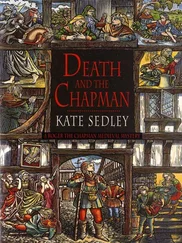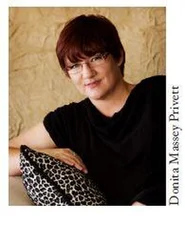Bonnie did not remember her mother mentioning it. Or perhaps it did ring a bell, being told about this bogus doctor and her dubious and potentially dangerous experiment; she had all but forgotten about it.
‘Do you think I’d have come on holiday with her,’ said Bonnie, ‘if I’d realised it was her?’
‘I suddenly realised who she was, just when you were leaving. I phoned your flat, but Sylvia answered. I told her I knew who she was, and told her to put you on the phone, not to take you away, but she hung up. I tried your mobile, but I couldn’t get you.’
‘Sylvia had my mobile,’ said Bonnie.
‘Is she there?’ asked her mother.
‘She’s here somewhere,’ said Bonnie. ‘She’s been up to her tricks again. I’m not sure where she’s gone though.’
‘But you’re going to come home?’
‘Yes.’
‘Are you all right?’ asked her mother. ‘You don’t sound all right.’
‘I’m a bit cold,’ said Bonnie. ‘My clothes are damp.’
‘Oh Bonnie,’ said her mother. ‘You’ll catch your death. By the way, did you hear the news about that laboratory you work at? An animal liberation group hatched a plan to let the animals out. That girl you know was involved.’
‘Fiona?’ said Bonnie.
‘Well, yes,’ said her mother, ‘although that’s not her real name. She took the supervisor’s keys and locked him in the store room. They blew up some outbuildings too.’
‘The store room’s in the outbuildings,’ said Bonnie. ‘They didn’t blow up the outbuildings with Mr Carr inside, did they?’
‘Oh,’ said her mother. ‘I don’t think so. I wouldn’t have thought so.’
‘Is Fiona OK?’
‘As far as I know,’ said her mother. ‘She hasn’t been caught.’
‘And did they manage it?’ asked Bonnie. ‘Did they release the animals?’
‘I’m not sure about that,’ said her mother. ‘I don’t remember reading that bit. So you’re going to come home?’
‘Yes,’ said Bonnie. ‘I’m coming now.’
‘You’re not going to drive, are you?’ said her mother.
Bonnie half-heard her father saying something in the background.
‘I’ll be fine,’ said Bonnie.
After hanging up, she took her suitcase to the door, put the ending to her story in her bag and picked her cigarettes up off the windowsill. She inspected that word that had appeared in or on the glass. Putting her finger to it, she could feel that nothing had been scratched in from this side of the window. She was reaching out of the open window for the handle when she noticed that what was written there was not ‘JUMP’ but ‘JUMI’, and she wondered what that might mean, and then it occurred to her that it was more likely to be that someone had not quite finished scratching the intended word into the glass, from the far side.
A little bit of blue down below drew her eye, and when she looked she saw Sylvia, lying on the slabs.
•
Out on the landing again, Bonnie gripped the banister, which was not made of wood but cold metal. She felt light-headed, weak-limbed. She had brought the yellow blanket with her, as if it were her comforter.
She descended the stairs. Below the carpeted landing, the concrete staircase was bare, and it did not spiral down but turned corner after corner, going down to a ground floor that was not white-and-red tiled, and there were no boxes of bar snacks at the bottom, and there was no bar. The building looked as if it had not been inhabited for months, or longer. It looked as if it had been gutted for redevelopment, or else it had been earmarked for demolition.
There was an emergency exit sign above a door that had a metal bar across it, the sort that you had to push down, the sort that might make an alarm go off, but none did; she exited in silence, emerging at the back of the building, an abandoned block of flats. Everything outside seemed bright and strange, like when she came out of the cinema in the middle of the afternoon.
She had half-expected that when she looked again, Sylvia’s body would be gone, like in a film where people who you thought were dead have somehow escaped. She was not in a film though: the body was still there, on the slabs, in its blue suit. Bonnie tried not to look at Sylvia’s leg, at the knee that was bent the wrong way.
‘Sylvia,’ said Bonnie, but she did not really expect a reply.
She looked at the sharp and shiny implement — something surgical-looking, such as a doctor might use — lying near Sylvia’s manicured, motionless hand.
Bonnie, crouching, put a hand to Sylvia’s throat, and then to her wrist, looking for a pulse. She did not know what to do with the yellow blanket. She wanted to put it like a pillow underneath Sylvia’s head, but she felt that she should not move her. She thought that she ought to cover the body, but did not want to put the blanket over Sylvia’s face. In the end, Bonnie tucked the blanket around Sylvia’s shoulders, leaving the face uncovered, as if Sylvia were only sleeping, with her head on the cold pavement.
Bonnie lit a cigarette, although the shaking of her hands made it difficult, and then she called the emergency services, and they told her to keep the line free in case they needed to call her. She wondered if there would be sirens, or if the ambulance would appear suddenly, quietly.
She found the car and lifted her suitcase into the boot. She was cold in her damp clothes, and had managed to come away without a warm coat, only waterproofs, and they seemed redundant now. She got into the car, sitting at first in the passenger seat, and then shifting across into the driver’s seat. She thought of home, of her mother’s voice on the phone, and her father’s voice in the background; she thought of getting back to work, the amusement arcade and the flashing buttons that said ‘GO’, ‘GO!’ An ambulance came around the corner and passed the parked car, and Bonnie saw it slowing down near the block of flats. They would find her.
She checked that she had her cigarettes and her lighter to hand, because she would want them, and then she put the key into the ignition and turned it, waking the engine. She had not driven for years and years, but it was still early, the roads were clear. She held down the clutch with one foot and touched the accelerator with the other and there was a roar. Bonnie released the handbrake and pulled unsteadily away from the kerb, away from the beach, away from the encroaching sea.
Thanks to Nick Royle for prompting me to write the short story ‘The Harvestman’, a reworking of which became a key part of Death and the Seaside . Thanks to Nick too for the loan of his busker, and, with his Salt hat on, for his finely honed editing skills. Thanks to Salt’s Jen and Chris Hamilton-Emery for their patience and for being, as ever, a real pleasure to work with. Thanks to John Oakey for magicking-up another striking and fabulous cover design. Thanks to Dan for being my other half, for not showing any signs of boredom during the many read-throughs and discussions, for sterling editing and for helping me to find the right ending. Thanks to my son Arthur, for loving stories and for not minding that I sometimes have my head in the clouds. I am also grateful to Andrew Harrison at the University of Nottingham for all his support and encouragement.
I am grateful for the following permissions, and informal blessings, to quote or reprint material:
Some parts of Bonnie’s Seatown story appeared in the short story ‘The Harvestman’, published by Nightjar Press in 2015.
‘The death of the author’, Roland Barthes, in Modern Criticism and Theory , 3rd edition, edited by David Lodge and Nigel Wood, page 313, published by Pearson Education Ltd, 2008, reprinted by permission of Taylor & Francis.
Читать дальше












